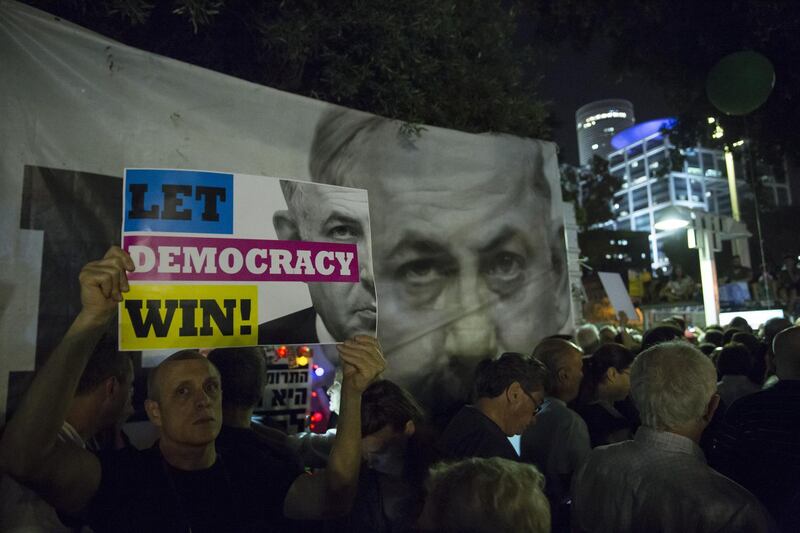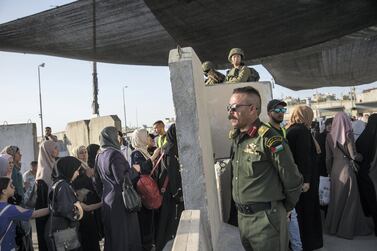Tens of thousands of Israelis marched in Tel Aviv on Saturday night to protest plans to grant Prime Minister Benjamin Netanyahu immunity from prosecution while in office.
The rally, which was named Stopping the Immunity Law — A Defensive Shield for Democracy, was the largest mass gathering since the social justice protests of 2011 that opposed the rising cost of living, according to organisers.
It was attended by a wide spectrum of Israelis who are angry at Mr Netanyahu’s push to pass legislation that would protect him from several corruption cases and limit the powers of the Supreme Court.
It is the first event organised by the opposition since Mr Netenyahu was elected for a fifth term in office last month.
The cases against him involve charges of fraud and bribery. Just before the election, Israel’s Attorney General abounded his intent to indict the prime minister, although the hearing that proceeds a formal indictment has now been pushed back until October.
Benny Gantz, the former Israeli army chief who stood against Mr Netanyahu in the election, said that the prime minister was “attempting to replace the people's rule with the rule of a single man” and “to enslave an entire nation to the interests of one man”.
Some protesters wore Ottoman-style fez hats and held posters depicting Turkish President Recep Tayyip Erdogan, saying that Israel was following a similar authoritarian path to Turkey, where Mr Erdogan has been amassing control over political institutions.
The rally was criticised by Palestinians for not initially including Arab-Israelis, who make up 20 per cent of Israel's population. However, Ayman Odeh, head of the Arab-majority faction Hadash-Ta'al, decided to attend at the last minute.
Election turnout among Israel's Palestinian citizens last month was low, in part because there was a feeling that Israel’s Jewish-majority centre and centre-left parties did not consider Arab voters and issues a priority.
“The struggle against Netanyahu’s attempts to destroy the democratic space is a common struggle for all of the democratic forces,” he told the crowd on Saturday.
“There cannot be an alternative to a corrupt and destructive government without the broad co-operation of all citizens – Jews and Arabs.
“Only with this co-operation will we be able to replace the government, only in this manner can we present an alternative to its destructive policy."
Israel still faces political uncertainty in the wake of the elections, with doubt as to whether Mr Netanyahu will be able to form a government. The two factions within his extreme-right coalition are in disagreement over legislation that excludes ultraorthodox Jewish Israelis from serving in the military.
The prime minister has until the end of Tuesday to meet the deadline for forming a government. If the standstill remains, Mr Netanyahu may call a snap election to prevent the opposition from trying to form a government instead.






